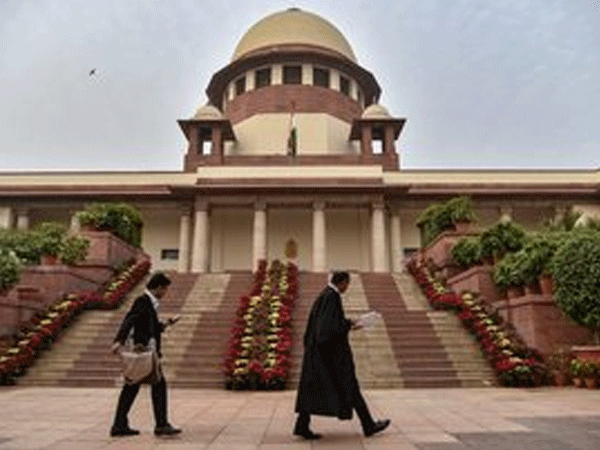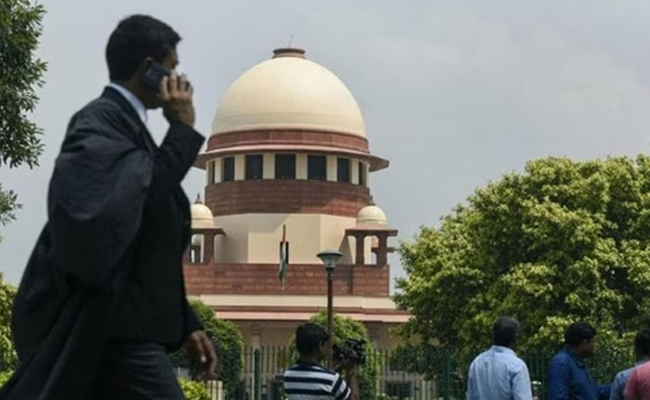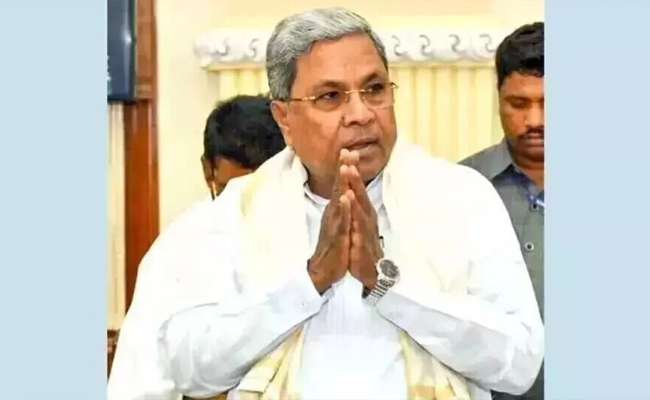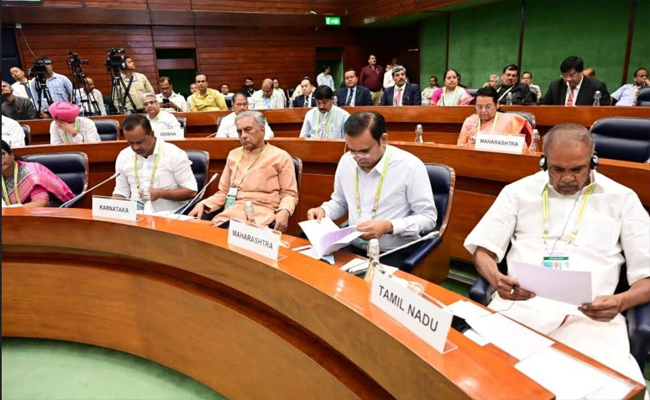New Delhi (PTI): The Supreme Court has sought a response to a plea challenging an order of the Madras High Court quashing a May 2018 notification prohibiting the sale, manufacture and transport of gutkha and other tobacco-based products.
A bench of justices KM Joseph and BV Nagarathna issued notice to Food Safety Commissioner, Jayavilas Tobacco Traders and others on a plea filed by the Tamil Nadu government.
"Issue notice in the special leave petition. Issue notice in the prayer for interim relief also" the bench said.
Additional Advocate General Amit Anand Tiwari, appearing for the state, argued that orders of the Food Safety Commissioner banning the sale, storage, manufacture, etc. of gutkha and other tobacco products are backed by Regulation 2.3.4 of the Food Safety and Standards (Prohibition and Restriction on Sales) Regulations, 2011.
The high court had set aside a notification issued by the Food Safety Commissioner on May 23, 2018, banning the manufacture, storage, transport, distribution and sale of gutkha, pan masala and other chewable food products containing tobacco/nicotine as ingredients.
It had held that allowing the Food Safety Commissioner to impose a permanent ban on tobacco products by issuing successive notifications year after year would amount to conferring a power that was not provided in the law.
Holding that tobacco, with or without additives, is a food product, the high court had held that notifications banning gutkha and pan masala in Tamil Nadu issued by the Commissioner of Food Safety are not within his powers and quashed the same.
Let the Truth be known. If you read VB and like VB, please be a VB Supporter and Help us deliver the Truth to one and all.
New Delhi (PTI): The Supreme Court has said it listed for Tuesday pleas on the vexed legal question of whether a husband should enjoy immunity from prosecution for the offence of rape if he forces his wife, who is not a minor, to have sex.
A bench of Chief Justice DY Chandrachud and Justice JB Pardiwala said the pleas were already "listed tomorrow" and they would be taken up after some part-heard cases.
The pleas for early listing were mentioned by senior advocate Karuna Nundy, appearing for a litigant in the case.
On September 18, senior advocate Indira Jaising, appearing for one of the litigants, mentioned that the pleas needed to be heard urgently.
The top court on July 16 agreed to list for hearing the pleas on the legal question. The Chief Justice had indicated that the cases might be taken up on July 18.
Under the exception clause of Section 375 of the Indian Penal Code (IPC), now repealed and replaced by the Bharatiya Nyaya Sanhita (BNS), sexual intercourse or sexual acts by a man with his wife, the wife not being minor, is not rape.
Even under the new law, Exception 2 to Section 63 (rape) says that "sexual intercourse or sexual acts by a man with his own wife, the wife not being under eighteen years of age, is not rape".
The top court on January 16, 2023, sought the Centre's response on a clutch of petitions assailing the IPC provision, which provides protection to a husband against prosecution for forcible sexual intercourse if the wife is an adult.
On May 17, it also issued a notice to the Centre on a similar plea challenging the BNS provision on the issue.
The BNS, Bharatiya Nagarik Suraksha Sanhita and the Bharatiya Sakshya Adhiniyam came into effect from July 1, replacing the IPC, Code of Criminal Procedure (CrPC) and the Evidence Act, respectively.
"We have to resolve the matters concerning marital rape," the bench had said.
The Centre earlier said the issue had legal as well as social implications, and the government would like to file its response to the petitions.
One of the pleas is related to a Delhi High Court split verdict of May 11, 2022, on the issue.
The appeal has been filed by a woman, who was one of the petitioners before the high court.
While delivering a split judgment, Justice Rajiv Shakdher and Justice C Hari Shankar concurred on granting the petitioners a certificate of leave to appeal in the Supreme Court as the matter involved substantial questions of law, which required a decision by the top court.
While Justice Shankar, who headed the division bench, favoured striking down the marital rape exception for being "unconstitutional" and said it would be "tragic if a married woman's call for justice is not heard even after 162 years" since the enactment of the IPC, he said the exception under the rape law was not "unconstitutional and was based on an intelligible differentia".
The concept of intelligible differentia distinguishes people or things grouped together from those that are left out.
Another plea has been filed by a man against a Karnataka High Court verdict that paved the way for his prosecution for allegedly raping his wife.
Karnataka High Court had on March 23 last year said exempting a husband from allegations of rape and unnatural sex with his wife ran against Article 14 (equality before law) of the Constitution.
The set of pleas are PILs filed against the IPC provision and have challenged the constitutionality of the marital rape exception under Section 375 (rape) of the IPC on grounds that it discriminates against married women who are sexually assaulted by their husbands.





